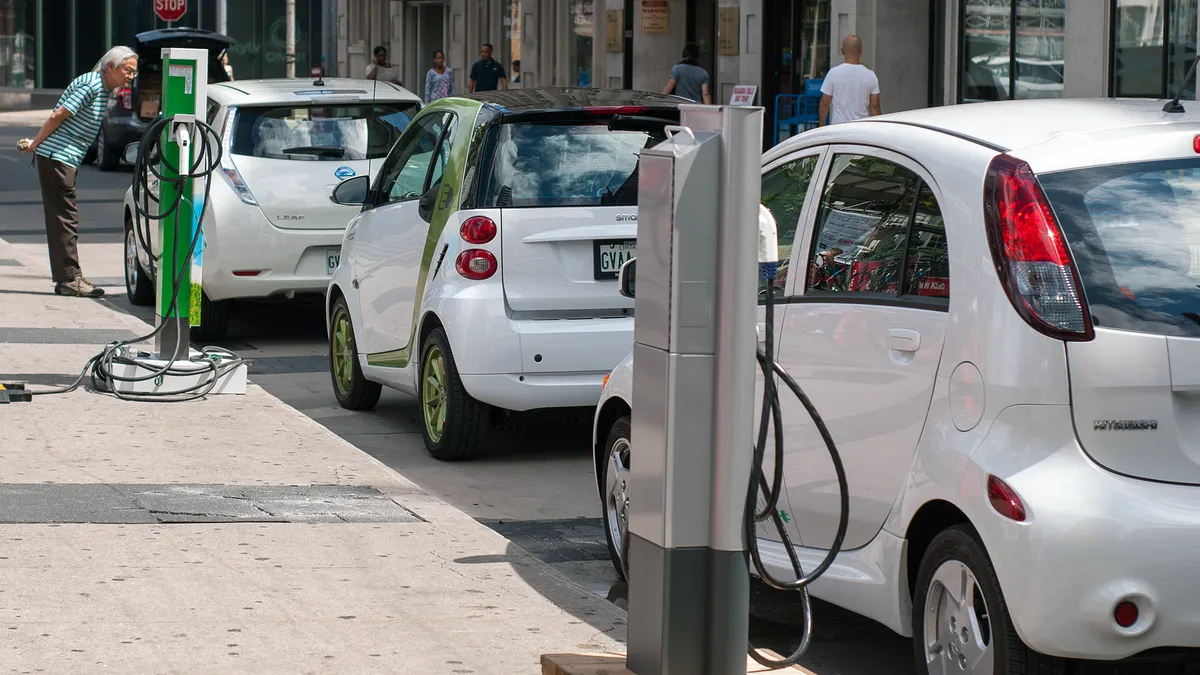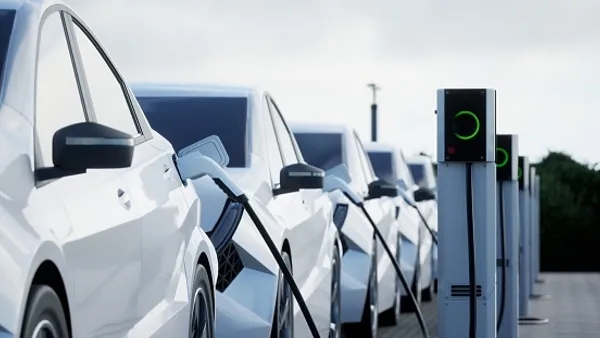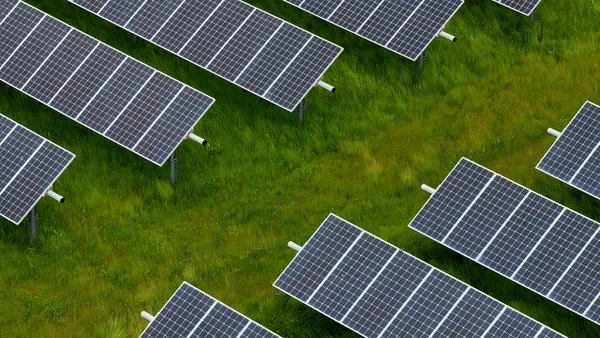Dive Brief:
- The Trump administration on Thursday proposed to freeze automobile emission standards at 2020 levels and revoke California's authority to set its own rules for vehicle efficiency and electric cars.
- The proposed rule would keep efficiency standards at about 37 mpg after 2020 — averaging between cars and heavy duty vehicles — rather than ramping up to more than 46 mpg by 2025 under rules proposed by President Obama.
- The rule will likely be challenged in court. California and 17 other states sued the agency in March when it announced it would review the Obama-era rules, followed by a group of electric utilities and automaker Tesla. Major utility trade groups also wrote to EPA in May asking it to finalize rules that "incorporate policies from California."
Dive Insight:
Electric vehicles could be a major source of electricity demand for utilities, but the Trump administration's vehicle efficiency rollback could slow their growth, particularly in their biggest market — California.
The state accounts for about half the U.S. EV market and has a mandate to put 1.5 million zero-emission vehicles on the road by 2025. If the state reaches Gov. Jerry Brown’s more ambitious goal of 5 million ZEVs by 2030, it could add up to 1 GW of power demand to the grid.
California's EV mandate is based on a legal waiver the state has under the Clean Air Act to set its own emissions standards for vehicles, granted when the law was drafted in 1970. Twelve other states have adopted California's efficiency standards for gas-powered vehicles, while nine others have similar policies for zero-emission vehicles.
California's waiver would be rescinded under the Trump administration’s new plan, with the White House targeting a single fuel economy standard for the entire nation. In the proposed rule, EPA and the Department of Transportation write the zero-emission vehicle mandates are "expressly and impliedly preempted" by federal laws governing fuel economy regulations.
"[B]y forcing manufacturers to design, produce, and deliver for sale vehicles that produce no tailpipe CO2 emissions, the ZEV mandate forces further expensive investments in fuel-saving technology than [The National Highway Traffic Safety Administration] has determined appropriate to require in setting fuel economy standards."
The move could be met with opposition from utilities, which have stepped up their public support for electric vehicles in recent months.
In May, a group of twelve utilities — including seven subsidiaries of Exelon, the nation's largest utility holding firm — joined with Tesla to ask the D.C. Circuit Court of Appeals to scrutinize the EPA’s decision to review fuel standards.
Later that month, the nation’s three big utility trade groups — the Edison Electric Institute, National Rural Electric Cooperative Association and the American Public Power Association — all wrote to the EPA asking it to finalize tougher fuel standards that include electric vehicles as a compliance option.
"[A]vanced technologies, such as EVs, can provide key flexibilities to automakers in a way that maintains a single national program for fuel economy and GHG standards," they wrote.
Utilities have also extended their lobbying beyond letters and lawsuits. In April, EEI and Duke Energy helped defeat an anti-EV resolution at a meeting of the American Legislative Exchange Council, a conservative state policymaking group, with the trade group saying utilities play "an important role in developing charging infrastructure and expanding access to electric transportation."
Despite strong language against California's auto policies in the proposed rule, the EPA may be open to some compromise. In a Senate committee hearing yesterday, Acting Administrator Andrew Wheeler said the agency would consider a potential compromise between the state and the auto industry that would allow California to retain its more ambitious policies.
"I would certainly welcome such a compromise," Wheeler said. "We want a 50-state solution that does not necessitate preempting California."













